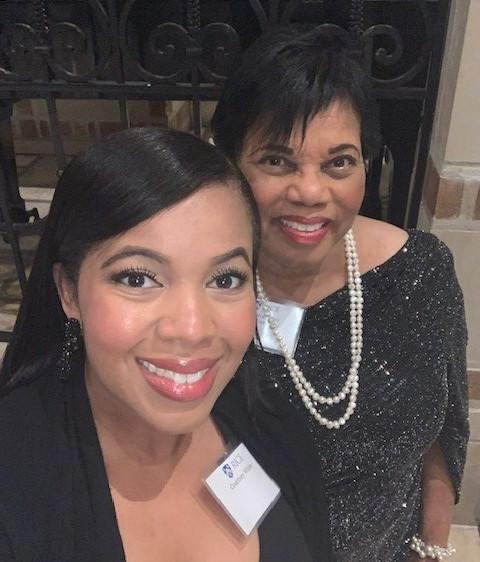Black History Month actually started as Negro History Week created in 1926 by Carter G. Woodson. President Gerald Ford made Black History Month a national celebration in 1976.
Since 1976, The United States has celebrated Black History Month in February. During Black History month the achievements and contributions of Black Americans are celebrated. While Black History Should be celebrated every day, Black History month compels deliberate remembrance in, as Mahalia Jackson sang, how we got over. There are so many Black Americans who have contributed to the U.S. and we don’t know their names. Often people connect Harriet Tubman, Frederick Douglas, Rosa Parks, and Martin Luther King with Black history month. But what about the countless inventors, writers, ministers, musicians, singers, songwriters, doctors, lawyers, and teachers that we don’t discuss? Well black history month is to celebrate their accomplishments as well.
In February, I wrote an article for the Texas Lawbook about a teacher you have probably never heard of, my mom.
Here is the article below:
In 1970, a teacher you probably never heard of left Clinton Park Elementary on the east side of Houston to teach at William B. Travis Elementary on the northwest side. Her name is Carolyn White, but I call her mom.
When my mom started teaching at Travis Elementary, she was one of six Black teachers who were called “crossover teachers.” These instructors were moved from all-Black schools to try to integrate predominantly white schools in the Houston school district. There was only one Black student in my mom’s class. In 1986, when I started kindergarten there _ and despite 16 years of Houston’s desegregation efforts _ I was one of only two Black students at the school.
Desegregation in the Houston Independent School District started in 1956, and it lasted for nearly 30 years. The New York Times in a Feb. 28, 1970, article called Houston the largest segregated school district in the United States.
Attending a school where I was one among just a few African-American children, I grew accustomed to being a minority in a large group. Once I decided to become a lawyer, I had no idea that my childhood experiences would prepare me for what I would encounter in the legal profession.

According to 2020 American Bar Association (ABA) statistics, only 5 percent of attorneys are Black or African-American, and that statistic has remained virtually the same for the past 10 years. A 2020 study showed that only 2 percent of equity partners at large law firms are women of color, a statistic that has stayed the same for 20 years. I noticed the lack of diversity in law firms during my college summer internship at a large international law firm. I had the opportunity to meet and was even encouraged to apply for the internship by a partner but wondered if I could actually work in a law firm environment.
I was encouraged to be a paralegal when I expressed my doubts and I almost considered it, even though I knew I wanted to be a lawyer. I had no idea what impostor syndrome was at the time, but I battled severe feelings of inferiority and wondered if I could actually be a lawyer. Thankfully, I had more positive voices encouraging me to pursue my dreams. First-generation minority lawyers like me have to learn how to navigate a high-achieving environment, provide economic value to their workplace, and determine what personal success looks like for them. I started my legal career with two jobs. I was a solo practitioner and an e-discovery contract attorney. I remained determined, however, and did not let the challenging economy keep me from believing that I would find a permanent job opportunity.

Courtney White and her mom, Carolyn.
Eventually I got that permanent job in law. But the further I went in my legal career, the less diversity I saw. And while I had been one of the only or one of the few minorities in many environments over the course of my life, I would now need to navigate those spaces while developing as a lawyer.
The legal profession is filled with high achievers and perfectionists. And often, attorneys are rewarded for perfectionism. I have learned that a key piece to navigating the legal profession is understanding that excellent performance is only one component of success. Equally important is to produce positive results for clients and build relationships with individuals at my workplace.
Lawyers who are successful understand how to provide economic benefit to the firms and companies they work for and they often receive guidance from mentors. I have benefitted from great mentors and allies in my legal career. Effective and engaged mentors are invaluable and provide guidance on how to provide value while motivating minority attorneys to pursue their goals. For some those goals may include partnership track, for others it may be pursuing opportunities in-house at a company, and for someone else it may mean working in the public sector. Affinity groups can also provide an opportunity for groups of attorneys with a shared experience to discuss their unique perspectives and experiences in a safe place.
It took time for schools to integrate and the journey of increasing diversity in the legal profession will take time, and effort, as well. A recent ABA report examines the experiences and challenges faced by women lawyers of color in particular and cites recommendations for law firms, including many things I have mentioned. The report adds that law firms need to go beyond recruitment to inclusion, adopt best practices for reducing biases, incorporate an intersectional approach to addressing diversity and create a more inclusive culture. The benefit to law firms is that by making diversity a priority, they are positioning themselves for success. Diversity results in greater creativity, better legal work product, and increased advocacy through teamwork. In-house legal departments are making diversity a priority and many, like Microsoft, are rewarding law firms for their diversity efforts. Having a culture of diversity in law firms and corporations benefits the legal profession overall and often provides financial benefits as well.
Today, I am a real estate lawyer with Jackson Walker, and I feel blessed to work at a firm that values the opinions of its employees, has made a statement in solidarity with the fight to end systemic racism, and is working to address diversity head on with our Pillars of Success. I enjoy having the opportunity to contribute to diversity efforts and I am currently Co-Chair of the firm Cultural Awareness/HR pillar. I was able to share my mom’s story with the entire firm during our Diversity and Inclusion hour. Today, my mom is Director of Mathematics Programs for the Rice University School Mathematics Project in Houston. She instructs teachers from various school districts and shares insights and lessons learned during her 50-plus years in education. Her dedication to her profession and commitment to professional development have always inspired me to do the same in the field of law.
